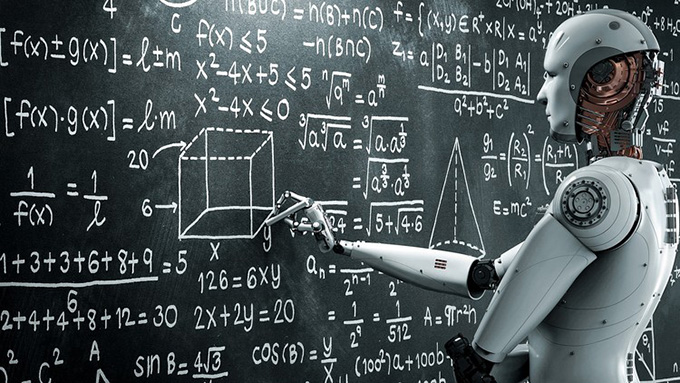
The British mathematician Alan Turing, one of the fathers of computing, asked himself in 1950 the question: can machines think? Right away he also wondered: can machines do what we (as thinking entities) can do? We now ask ourselves: is ChatGPT the answer to Turing?
At the moment, many mathematicians have already detected that, in our discipline, the chatbot “fails more than a fairground shotgun”. Exercises with wrong answers, explicit solutions to non-linear insolvable systems, directors of final degree projects reviewing proofs with errors, non-existent bibliography and other nonsense are some examples. But can all these tools be improved in ways that supplant human mathematical activity?
Last February, Nature published a short note : “We asked ourselves a very specific question: will machines change mathematics?” suggested Andrew Granville, a researcher in number theory at the University of Montreal (Canada). Part of the debate centers on what kind of automation tools will be most useful.
Following this reflection, Javier Yanes points out in the OpenMind project blog about the Lean program, a predecessor of ChatGPT:
This initial advance of AI in the field of mathematics would give rise to the paradigm that has predominated during the first decades of its development, the so-called symbolic AI, which basically consists of using rules, calculations and logic in the same way that humans code. our reasoning process. In short, it is based on the manipulation of symbols. The result of this line is a system called Lean, launched in 2013 by the computer scientist Leonardo de Moura, from Microsoft Research. Lean is an interactive theorem prover and programming language, allowing mathematicians to check and refine their proofs in a reproducible way for their peers.
This interactive computer tool described by Yanes is defined as a “theorem prover” . It forces researchers to write down every logical step of a problem, down to the most basic details, and ensures that the math is correct. Two years ago, a team of mathematicians managed to translate an important but impenetrable proof—so complicated even its author wasn’t sure—into Lean, thus confirming that it was correct.
Mathematicians are more creative than AI
What would be the consequences of all this for the employment of mathematicians? Many say that we are among the least concerned about the low risk of automating our tasks. Even so, the focus has long been placed on our community.
Although artificial intelligence tools can already prove theorems and are beginning to tackle the toughest math problems, mathematicians aren’t worried about their jobs yet. For example, in the case of problem provers like Lean, it seems that at the moment they can only point to consequences of known facts that mathematicians had not noticed.
Melanie Mitchell, a computer science and cognitive scientist at the Santa Fe Institute in New Mexico, says ( https://www.nature.com/articles/d41586-023-00487-2 ) that mathematicians’ jobs will be safe until one of the main deficiencies of artificial intelligence is solved: its inability to extract abstract concepts from concrete information.
“Even though AI systems can prove theorems, it’s much harder to come up with interesting mathematical abstractions that give rise to the theorems in the first place,” says Mitchell. Creativity is inherent in the development of mathematics. We can also recall here Thomas Hayes’ demonstration using computers of the packing problem and the debate about the validity of a proof that no human being has been able to verify for himself.
Other areas (modelling, cryptography, finance, risk) where mathematicians have played a key role in recent years would be further threatened. However, the lack of confidence in the reliability of solutions based on artificial intelligence to make critical decisions reinforces the role of people capable of designing and interpreting solutions based on these algorithms.
In short, despite the alarm bells, many experts believe that the future of mathematics will not be greatly affected by advances in artificial intelligence, but rather will be its ally. Therefore, although machines may take over some aspects of mathematical work, new opportunities will also appear for people trained in this field.
Ole Paulson, in his AI and Jobs blog , concludes: “It seems likely that increased use of AI will not translate into an overall decline in job opportunities for mathematicians, but rather create more diverse possibilities within of the profession”.
Following in the footsteps of Poincaré in his defense of human thought in the development of mathematics , Chris Budd, from the University of Bath, points us in the direction that most reinforces us: “Mathematics is a creative activity, and perhaps it is the lack of creativity which prevents machine learning algorithms from doing deep math.”
Almost 75 years after Turing, we are back at the starting line, but with a technological development unthinkable in his time, even though we are still unable to give an accurate definition of intelligence and are unaware of how our brains work. Although artificial intelligence imitates us better and better, we can affirm that, for now, it is one more collaborator. If you are not convinced, ask ChatGPT.
Author Bios: Mª Pilar Velez Melon is a Professor of the area of Mathematics, University Defender at Nebrija University, Manuel de Leon Rodriguez is CSIC Research Professor, Royal Academy of Sciences at the Institute of Mathematical Sciences (ICMAT-CSIC) and Rodrigo Francisco Trujillo González works at the University of La Laguna
